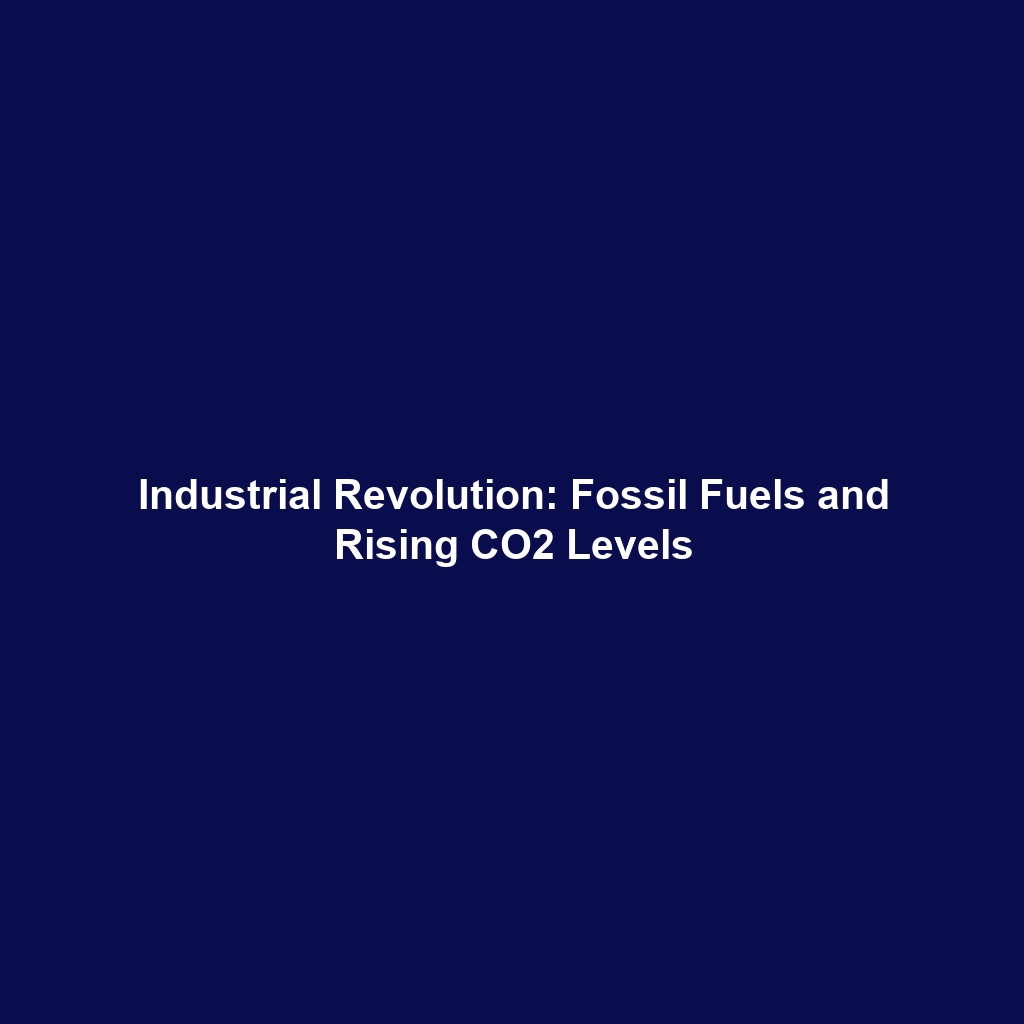Impact of Fossil Fuel Burning During the Industrial Revolution on Atmospheric CO2
Introduction
The burning of fossil fuels during the Industrial Revolution marks a pivotal shift in climate history, initiating a profound increase in atmospheric concentrations of carbon dioxide (CO2) and other greenhouse gases. This critical development set the stage for modern climate change, influencing global weather patterns, ecosystems, and human health. Understanding how fossil fuel combustion contributed to rising greenhouse gas levels is essential for grasping climate history and the urgency of ongoing climate action.
Key Concepts
The Industrial Revolution and Fossil Fuels
The Industrial Revolution, spanning from the late 18th century to the early 19th century, was characterized by a rapid transition to mechanized production systems. The reliance on coal, oil, and gas for industrial activities led to unavoidable increases in greenhouse gas emissions.
Greenhouse Gas Emissions
As fossil fuels were burned for energy, they released vast amounts of CO2, along with methane and nitrous oxide. These greenhouse gases trap heat in Earth’s atmosphere, contributing to global warming—a major theme in climate history.
Applications and Real-World Uses
Understanding how the burning of fossil fuels increased CO2 levels has significant applications in climate history, policy-making, and environmental science:
- Development of carbon accounting practices helps estimate the impact of fossil fuel emissions.
- Historical data on emissions informs climate models that predict future trends.
- Policy frameworks aimed at reducing greenhouse gas emissions are designed based on historical emissions data.
Current Challenges
Despite progress in understanding the implications of fossil fuel burning, several challenges persist:
- Data Availability: Comprehensive historical data on fossil fuel use remains limited.
- Resistance to Change: Economic and political factors often hinder the transition to renewable energy sources.
- Scientific Uncertainty: Predicting the exact outcomes of past emissions on future climate scenarios involves complexities.
Future Research and Innovations
Research is ongoing to mitigate the impacts of historical fossil fuel usage on climate change:
- Carbon Capture Technology: Innovations in capturing and storing carbon emissions are vital for reducing greenhouse gases.
- Renewable Energy Solutions: Research continues on more efficient solar, wind, and bioenergy technologies that could replace fossil fuels.
- Climate Resilience Studies: Upcoming research aims to enhance understanding of ecosystems and their adaptability to changing climates.
Conclusion
The burning of fossil fuels during the Industrial Revolution initiated a significant increase in atmospheric CO2 concentrations, affecting climate history and our current understanding of climate change. Addressing this issue requires a collective commitment to sustainable practices and innovative solutions. For further reading, explore our articles on renewable energy technologies and climate policy initiatives.
This format seeks to provide a comprehensive and SEO-optimized scientific article on the impact of fossil fuels during the Industrial Revolution, ensuring that relevant keywords and structured headings enhance readability and search engine visibility.
